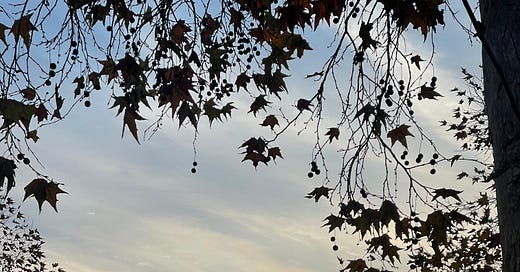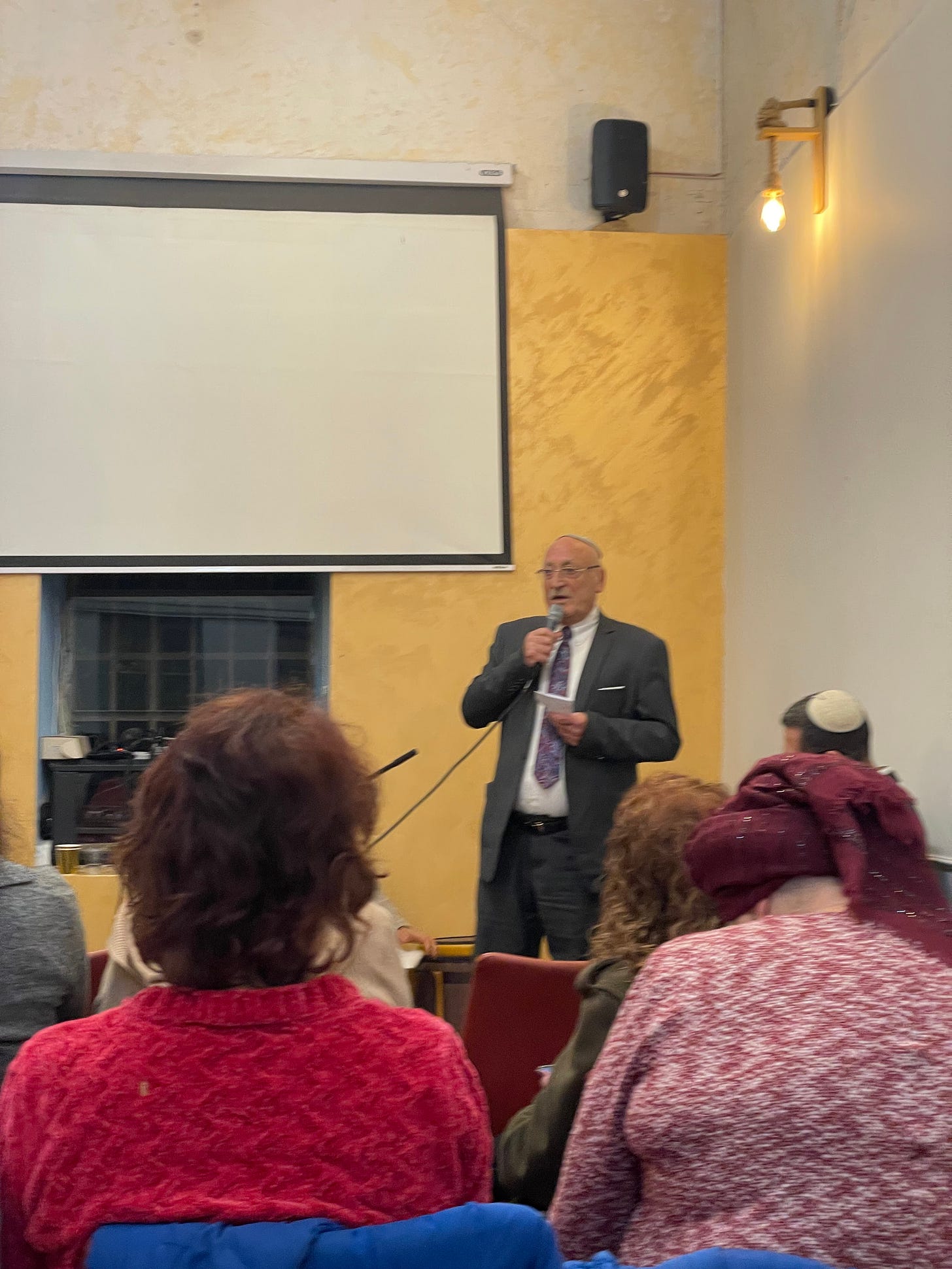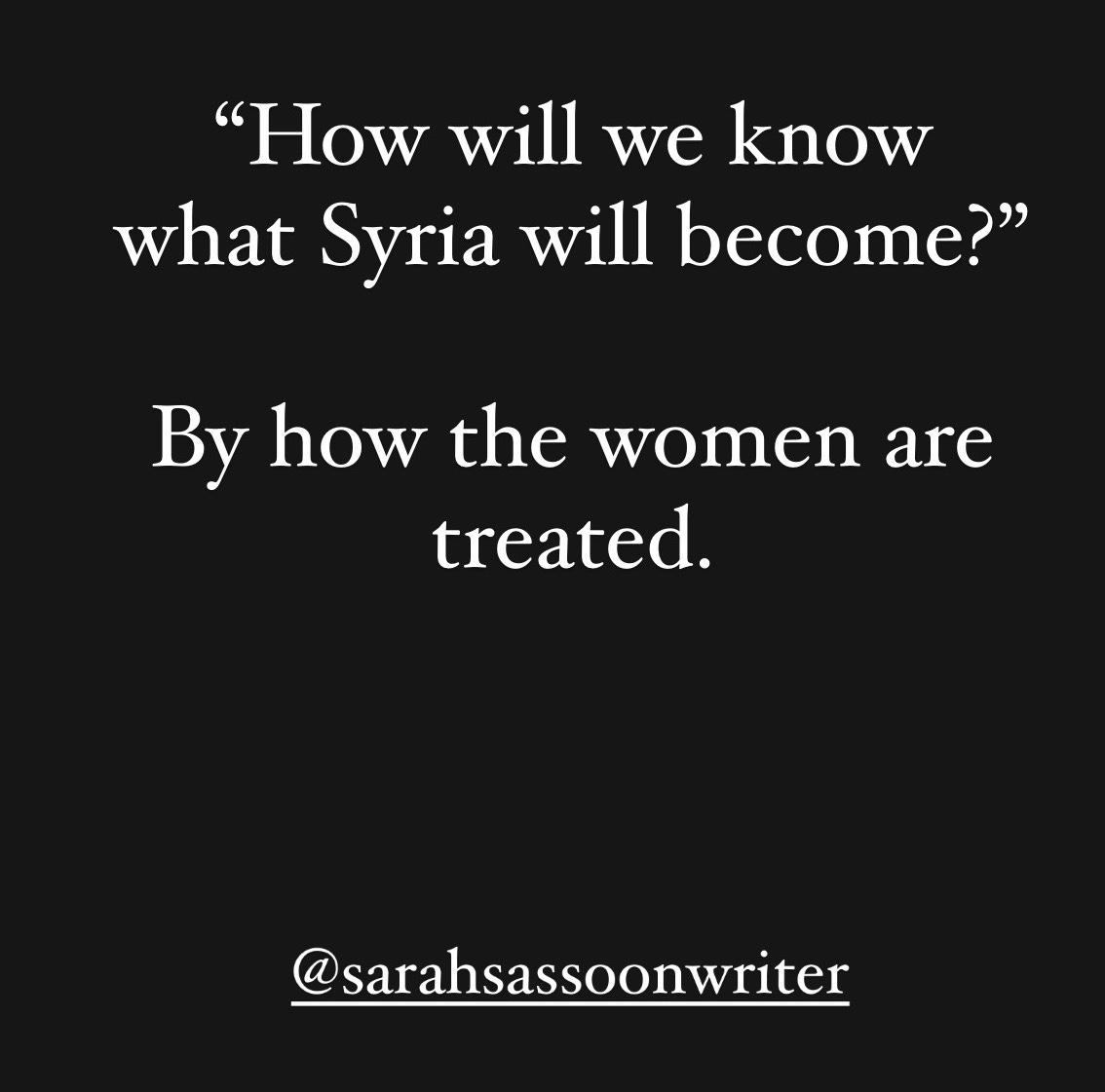Resilience feels like it has become a buzz word. An important one. The question of how we get through tough times. These days feel tough. This whole year has been tough. This whole year has been about leaning into stories.
No matter how bad it’s been this year I have thought about my grandparents and my father. All the hardships they went through as displaced refugees from Iraq. Remembering them in this time of war I have been grateful for every hot shower, every rare, home cooked meal with all my boys around the table, every gathering of friends and strangers. I am counting them. Counting my blessings.
When we sit together we share stories. Every story shared spreads joy within all the grief. We shed tears of joy and grief together. This is resilience.
Resilience is my neighbor sharing with me the love story of her son, whose wife Adi, was murdered (slaughtered, I am scared to ask how) on October 7 by the army of Gazan Hamas terrorists. Their boys were kidnapped with another woman, Avital Alajem. Avital managed to escape with Adi’s baby, 4 1/2 month old Eshel, and almost 4 year old Negev, shot with a bullet, carrying them for kilometers. My neighbor tells me on that terrible day her son lost his beloved wife, and yet he also met his new love, Avital who saved her sons. He feels his wife, Adi sent Avital to help him raise their boys with love. (Link to interview with Avital below in Notes.)
I feel shivers as I write this story. How we share the stories of love amongst the stories of death. It is through the stories we tell that we see the world. Those boys will be brought up with the story of love, despite their mother’s tragic death. They will know despite all the terror there is still love in the world.
The story of where we come from, all we have lost and all we rebuild was my theme for Mizrahi Heritage Month. On the 30th of November, the Day of Remembrance for the million Jewish refugees from Arab lands my synagogue honored Zion Hassid, a major benefactor of our synagogue, and an Iranian refugee, who fled with his family in 1963 to Israel. It was an evening of traditional Persian and Iraqi music played by Nittai Kallay, and overflowing tables of Middle Eastern foods and drinks. A feast of togetherness. What was most special was hearing Zion Hassid’s story, why he and his family left Iran in 1963 and their experiences as immigrants in Jerusalem.
He described the world of old Isfahan, where many families lived in homes built around a courtyard. His family included. A world where Jews had lived for thousands of years, rich with ancient Jewish traditions since the Judean exile.
Why did the Persian Jews leave? In the 60’s Iran was under the Shah, but that doesn’t mean there was no antisemitism. Zion related how there was terrible, everyday antisemitism. As a child he walked 3-4 kilometers to school every morning, and every morning they knew they’d be hit on the way by non-Jews. The way home was safer as they returned accompanied by bigger boys to protect them.
Zion also related how the Jews were labelled as impure. The Muslims believed you are not allowed to touch a Jew or you will become impure. If it rained and you were on a bus nobody would sit next to Zion because he was impure. Zion’s story reminded me of my great grandmother from the village Hila in Iraq. My great aunt told me she was not allowed to touch vegetables in the market. Only her muslim male servant was allowed. Because she was a Jew. She was impure.
The last push to leave for Zion’s family was when an unfair Muslim judgement was ordered against them. Zion declared he was leaving to Jerusalem. His father however replied, “How can you go to Jerusalem. Jerusalem is only for tzaddikim, righteous people.” But righteous or not righteous, Zion convinced his father to leave with him, and in 1963 their family of 13 souls arrived at Lod airport. They ended up living in Jerusalem, all 13 of them with other family in an 80 square meter apartment. They did not complain. They were not depressed. They were grateful to be in Jerusalem.
This is the story Zion tells. Is it true? It’s true for him. I’m sure there were moments of doubt, overcrowding, dire poverty, but throughout Zion only speaks of faith in God. He shared how he shouldered his way into a building job, promising the contractor that if he wasn’t happy with his work he would forgo payment. From there Zion learned how to build a wall without falling down. Today Zion heads one of the biggest developing companies in Jerusalem.
I loved hearing Zion’s father’s voice still alive in his head. What is telling is that the first building Zion was involved in building was a Persian synagogue, as his pious father’s insistence. Listen to paternal wisdom and guidance; to only build in Jerusalem, that it’s not enough to build a building it needs to be a beautiful building, and whatever you build make sure the people you build for bless you.
Listen to Zion speak and learn how to rebuild from nothing — a new life. More than that in rebuilding his own life, Zion rebuilt Jerusalem.
Traditional Persian Jewish Song with Nittai Kallay
See how strong Jewish Middle Eastern faith is. Zion reminded me of my grandparents. How when you say thank you, you really thank God. In Judeo-Arabic class I learn that the word for thank you - ašker-ak is a young, recent word in Judeo-Baghdadi, maybe 200 years old (I know it’s an ancient language so years are relative). Because really you’re meant to say thank you to God, not a person.
To be a Middle Eastern Jew is to have different eyes.
Zion also related how he was secretly contacted by the Iranian Jews who publicly supported the regime recently. Perhaps you saw them on the news. They told Zion they were sorry, but they were coerced. A reminder that there are still Jews in Iran held hostage. They are not free in the Islamic Regime. There are many people who do not support terror regimes and don’t have a voice.
I listened to Zion and remembered how free I am. What it cost my family to flee Iraq for me to have this freedom and safety. Today three Jews live in Iraq, and yet I’m still here. Blessed to write these stories freely. And yes blessed with hot showers, and hot meals from my grandmother’s Iraqi Jewish recipes to share with those I love.
Meal by meal. All we have this moment.
We don’t know what tomorrow brings. I pray for more good news like Assad’s regime falling. We don’t know who will take over, but like I noted on Instagram from a coffee shop conversation, if it is a power that respects women and minorities then it will be a power for the people, for prosperity, for a new free Middle East.
All we pray for. The resilience and remembrance to create a new story of joy.
With blessings and deep hope,
Sarah
Notes:
Meet Avital in this CNN interview and hear her harrowing story with the Hamas terrorists here. Note. At the time Adi was missing, later discovered murdered.
Shortlisted for the Wingate Award for Unpublished Manuscripts (Jewish Subject) - I was really thrilled to have my unpublished manuscript “Baghdad Girl” shortlisted for this wonderful award. Anna Kharzeeva won with her “Warm Walls: A Journey from Moscow to Sydney, to self. A memoir with recipes. Non-Fiction.
For more about me and my writing visit my website www.sarahsassoon.com
To support my work please consider buying my children’s books, the award winning Shoham’s Bangle, and my latest This is Not a Cholent. My mission is to spread and educate about Jewish Middle Eastern culture.
Read my free online, award winning poetry collection, published by Harbor Review - This is Why We Don’t Look Back.
Note - My Substack will be fortnightly. Maybe more often… I appreciate all comments, all conversations, and all sharing.
Further - All mistakes are proof that I am human, and this is not an AI publication.
Sarah’s Substack - Picking Lemons is a reader-supported publication. To receive new posts and support my work, consider becoming a free or paid subscriber.








Sara thank you. Your voice is so full of soul, strength and truth.
You are resilience personified. When I feel my own flagging, I come here and am reminded. Thank you for your words, Sarah.